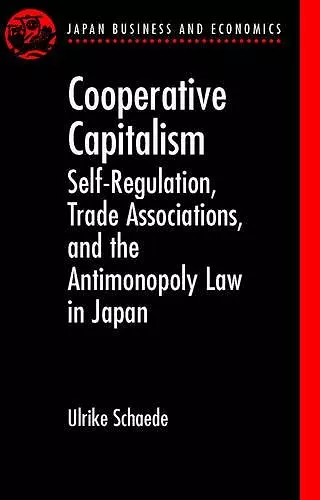Cooperative Capitalism
Self-Regulation, Trade Associations, and the Antimonopoly Law in Japan
Format:Hardback
Publisher:Oxford University Press
Currently unavailable, and unfortunately no date known when it will be back

The Japanese government is becoming less involved in shaping industrial policy–but what does this imply for the openness of Japanese markets to foreign competition? In an extensive study of 'post-development' Japan, Ulrike Schaede argues that, contrary to what many have suggested, the reduced role of government regulation may not result in more open markets. Instead, as has happened throughout Japanese history, deregulation and the recession of the 1990s have once again led Japanese trade associations to assume important regulatory functions of their own. They do this through 'self-regulation'–setting and enforcing the rules of trade for their industries, independent from the government. As a result, many Japanese markets are now effectively governed by incumbent firms, in particular in terms of structuring the distribution system. As the record of postwar antitrust enforcement reveals, Japan's antitrust system considers most activities of self-regulation, other than outright price-fixing, as legal. Using interviews and a unique database of trade association activities, this book concludes that increasing self-regulation renders both government deregulation programmes and international trade negotiations ineffective in opening Japanese markets. The implications of self-regulation for Japanese industry are mixed: while internationally competitive firms can use self-regulation to reduce competition at home in order to compete more forcefully abroad, some domestic industries, such as the financial sector, may suffer from increased self-protection.
ISBN: 9780198297185
Dimensions: 242mm x 163mm x 22mm
Weight: 618g
314 pages